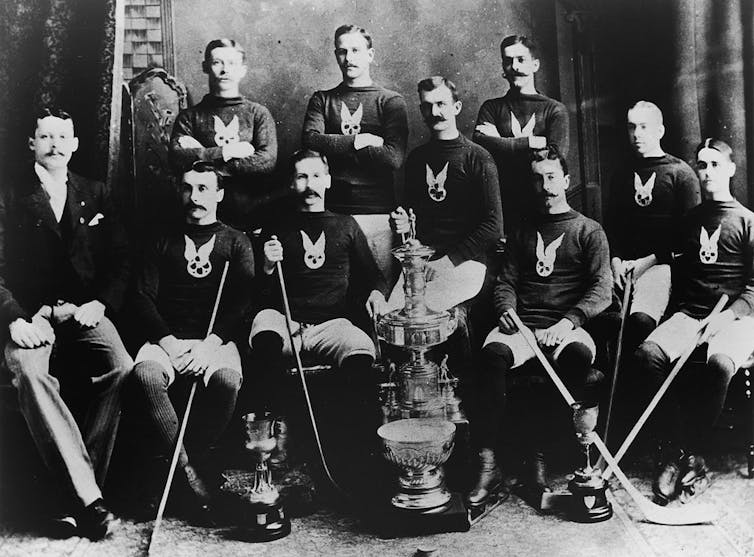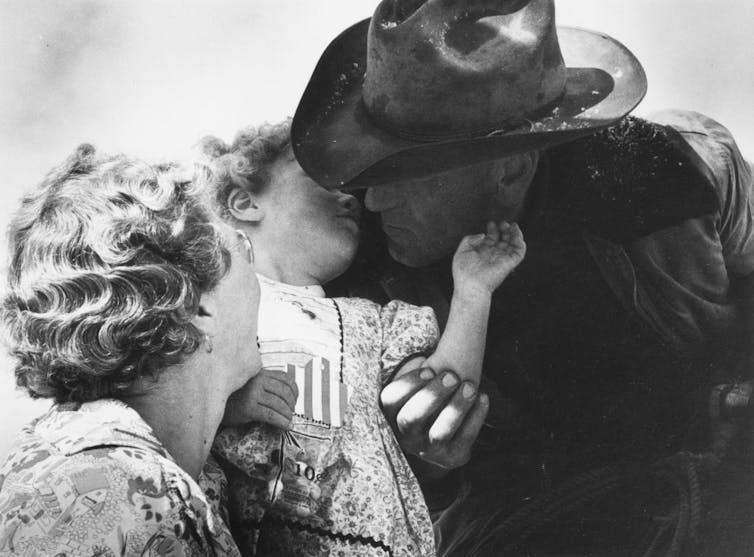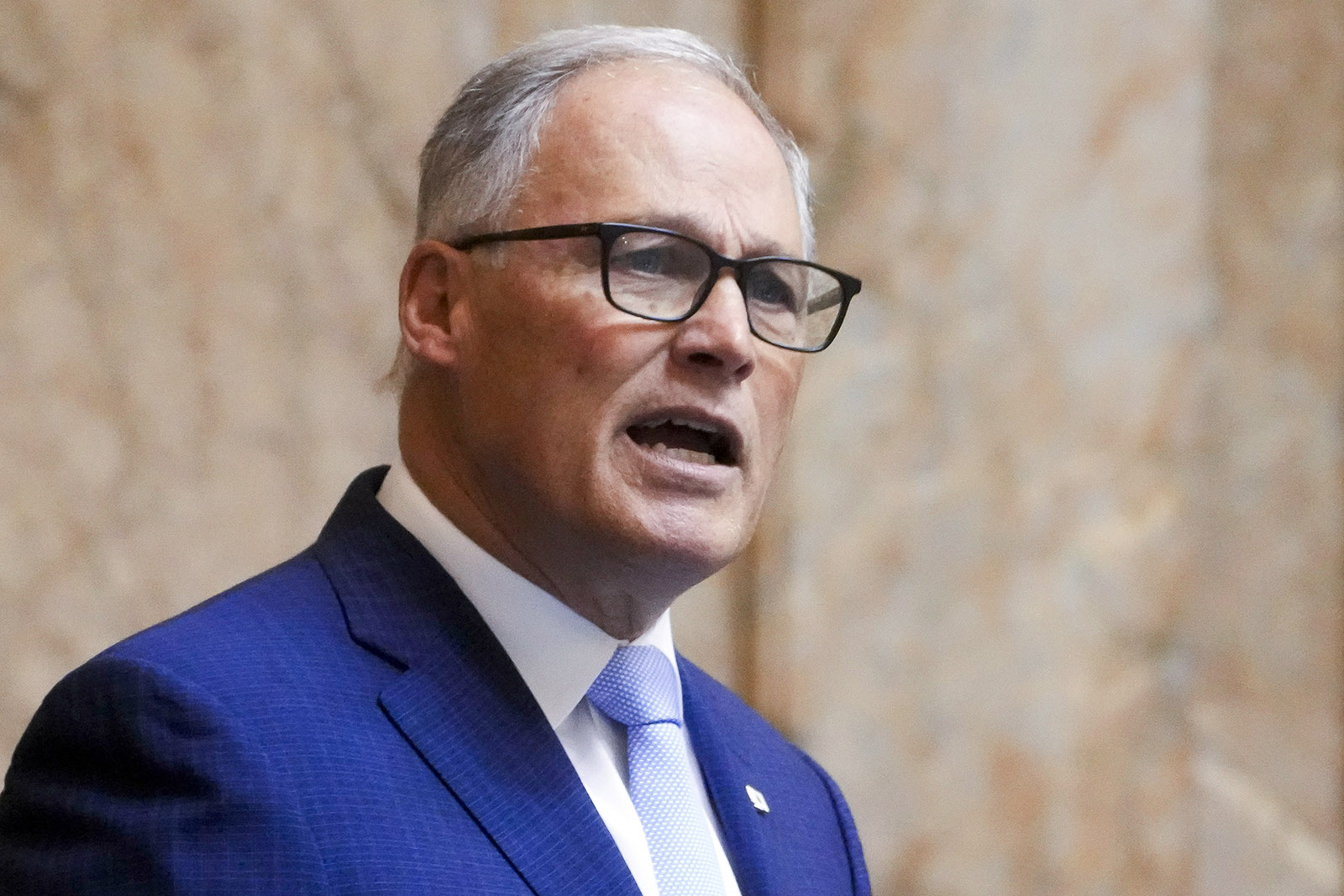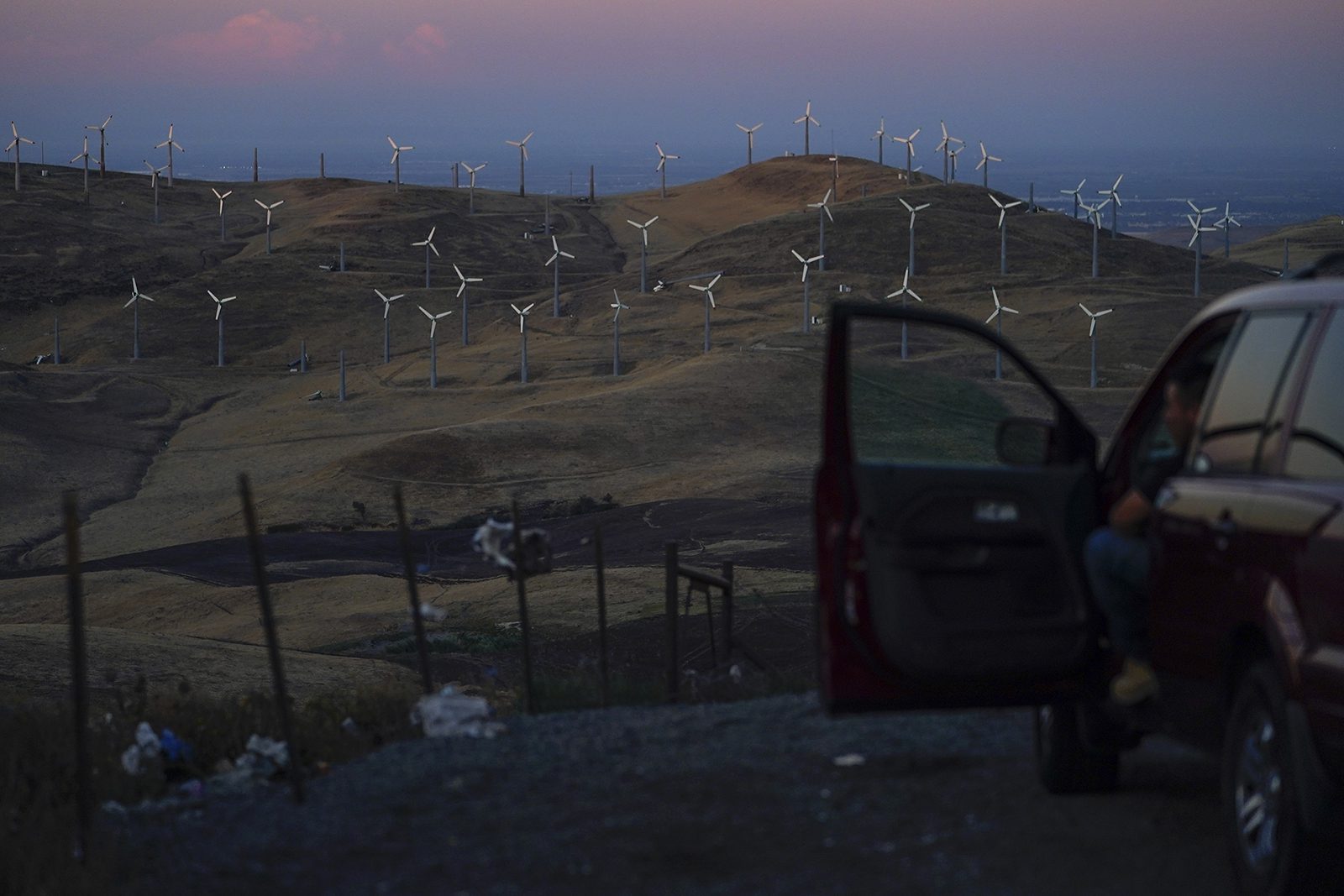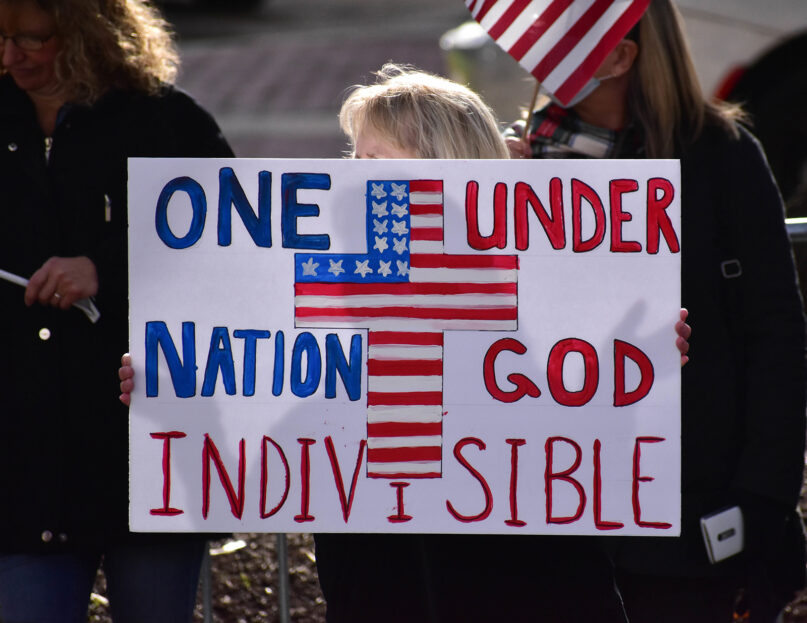Mark Bergman 21 June, 2024
Left Foot Forward columnist Mark Bergman gives his latest in-depth look at the US Presidential election
Filmmaker and historian Ken Burns, speaking at Brandeis University’s graduation ceremonies last month, as reported by Jennifer Rubin (“The media and sullen nonvoters should listen to Ken Burns”), could not have been more blunt: “Do not be seduced by easy equalization. There is nothing equal about this equation. We are at an existential crossroads in our political and civic lives. This is a choice that could not be clearer.” In fact, said Burns “[t]here is no real choice this November. There is only the perpetuation, however flawed and feeble you might perceive it, of our fragile 249-year-old experiment, or the entropy that will engulf and destroy us if we take the other route.”
And there we were, marking the 80th anniversary of the D-Day invasion. While President Biden walked the sacred ground of the American Cemetery at Normandy, then Omaha Beach, and honored the sacrifice of American heroes who died on the beaches of Normandy, Donald Trump was in Phoenix accusing America of being a “failed nation” and a “very sick country,” invoking the “great replacement” conspiracy theory, praising Viktor Orban and pledging to “seal the border” and carry out the “largest domestic deportation operation” in American history. On Sunday, the President will visit Aisne-Marne American Cemetery, where 1,800 US Marines killed during World War I at Belleau Wood are buried – Trump refused to visit the cemetery during the 2018 Armistice Day commemoration of the 100th anniversary of the end of WWI because it had been raining, and defended his decision to his then chief-of-staff John Kelly (whose son also a Marine died in Afghanistan), by saying, “why should I go to that cemetery? It’s filled with losers.” Trump would shortly thereafter call the 1,800 Marines “suckers” for getting killed.
On May 30, the first American president without prior government or military experience, the first president to have been impeached twice, the first president to incite a coup against his own government, the first president to be found liable for sexual abuse (and but for a quirk in New York Penal Law would have been found liable for rape), the first candidate for president to refuse to commit to a peaceful transfer of power and the first former president and candidate for president to say that political violence depends on whether or not he wins, is now the first former president and candidate for president convicted of a felony. That verdict underscored the strength of our democracy and one of its central tenets, that no one is above the law.
But no sooner was the 34th guilty verdict announced than the full weight of the Republican Party machine came crashing down on the judicial system, and with it the fundamental tenets of our democracy. The former “party of law and order” found that a verdict it did not agree with warranted threats against judges, the DoJ and the FBI, the jurors and individual prosecutors. And as Trump threatened to prosecute his enemies if he is again president (reminiscent of pre-Watergate times when presidents weaponized the FBI and IRS for partisan purposes), there was hardly any pushback from Trumpworld. In fact, in a sign of the complete surrender of Republican lawmakers to the Trump narrative, during an appearance at the Pennsylvania state House by two former Capitol Police officers who defended the Capitol on January 6th, the officers were met with jeers and walkouts by certain Republican members. Really?
And Trump has amped up his grievance narrative replete with, in the words of Glenn Kessler of the Washington Post, a “gusher of falsehoods about the trial.” As Washington Post columnist Dana Milbank summarized (“As Biden rallies the free world, Trump serves a higher cause: Himself”):Trump’s campaign website proclaimed him to be a “political prisoner” (no surprise after Trump compared his plight in February to that of a real political prisoner, Alexei Navalny).
In a Fox & Friends Weekend interview, Trump said that if he were imprisoned or put under house arrest, he is “not sure the public would stand for it. You know, at a certain point, there’s a breaking point.” This, lest we forget, from the man who repeatedly called for Hillary Clinton to be “locked up.”
At a Phoenix campaign event on Thursday, Trump warned “They’re not coming after me, they’re coming after you, and I just happen to be standing in their way.”
Trump has called Judge Juan Merchan a “crazed” “devil” who “crucified” defense witnesses. If they can do this to me, they can do this to anyone. These are bad people. There are in many cases, I believe, sick people.”
On Fox & Friends Weekend, Trump, echoing Senator Joe McCarthy 70 years ago, warned about the “enemy from within” doing more “damage to this country” than Russia or China. He is completely right, but for a very different reason.
Referring to the DoJ, he warned on Newsmax that “It’s a terrible, terrible path that they’re leading us to, and it’s very possible that it’s going to have to happen to them.” It is a terrible precedent for our country. Does that mean the next president does it to them? That’s really the question.”
In private, according to reporting by the Washington Post, Trump has told advisers and friends he wants the DoJ to investigate former allies and officials who criticized him, wants to appoint a special prosecute to investigate President Biden and his family and wants to prosecute officials at the DoJ and the FBI.
But should we be surprised, since this is the party so many of whose adherents have spent over three years seeking to discredit our election system? As Jennifer Rubin pointed out in an op-ed earlier this week (“Democrats must defend Trump’s guilty verdict against MAGA jury denial”), it was an easy jump from defaming election workers to defaming jurors. And we have seen the broader playbook before – if Trump loses an election, it is because the election was fraudulent, and so if he loses a legal case, it is because the process was corrupt and rigged. And to put this into the broader context of a presidential candidate bent on crushing democracy, as historian Ruth Ben-Ghiat reminded us, whenever authoritarians are ascendant, discrediting judges, prosecutors and the courts is to be expected, because authoritarianism thrives when the rule of law is converted into “rule by the lawless.”
So, can Trump prosecute his enemies? Adam Liptak, in his analysis (“Trump’s Vows to Prosecute Rivals Put Rule of Law on the Ballot”), quotes former counsel in the administrations of Ronald Reagan and George H.W. Bush David B. Rivkin Jr. in noting that, while Trump’s threats challenge long-established norms, “[a]s a constitutional matter, the president has broad law enforcement discretion to prosecute anybody. You don’t get immunized because you are the enemy of a president.”
Liptak quotes Brennan Center President Michael Waldman who posits that for “Trump to be able to abuse power … would require prosecutors to cooperate, would require the FBI and others to shed their independence, and for juries and judges to go along.” More concerning, notes Litvak, is that Trump’s threats serve not only to provide “the red meat of prospective retribution to his base,” but also to undermine faith across society in the criminal justice system.
Unpacking the False Claims
As Trump and his enablers are likely to make the “rigged” trial and “unfair judicial system” central pillars of Trump’s campaign (at least until another target of his ire appears), I offer some thoughts on the falsehoods: “Just so you understand, this is all done by Biden and his people.” No, Trump was prosecuted by the Manhattan District Attorney, who inherited the case from his predecessor, Cyrus Vance, and there is zero evidence that the President was involved. This is classic Trump – projecting on to others the actions he would have taken in the same situation.
“When I announced I was running for president a long time later, they decided to revive this case.” No, the case predates Trump’s November 2022 announcement he would run.
“I would have loved to have testified, but [I was told by my counsel] I would say something out of whack.” This speaks for itself.
“We just went through one of many experiences where we had a conflicted judge, highly conflicted.” The New York Advisory Committee on Judicial Ethics found no conflict of interest, and the New York Appellate Division upheld Judge Merchan’s decision not to recuse himself.
“We weren’t allowed to use our election expert under any circumstances.” As Kessler notes, Judge Merchan did not bar the expert, but limited his testimony on federal campaign finance law. The defense elected not to call the expert as a witness.
“I wasn’t allowed by the judge to use, in any form, the standard RELIANCE ON COUNSEL DEFENSE (ADVICE OF COUNSEL!).” The defense decided not to serve up the advice of counsel defense because it would have required Trump to waive attorney-client privilege and Judge Merchan rejected their “presence of counsel” defense .
“The judge hates Donald Trump. Just take a look. Take a look at him. Take a look at where he comes from. He can’t stand Donald Trump. He’s doing everything in his power.”
“Witnesses that were on our side … were literally crucified by this man who looks like an angel, but he is really a devil.” So said Trump. We have seen this before – an attack on a Latino judge. Recall Trump’s attack on Federal judge Gonzalo Curiel, who oversaw the Trump University fraud class action. These bigoted attacks are nothing short of an attempt to undermine faith in the judicial system.
As Adam Serwer noted (“Trump Wishes His Trial Were Rigged”), Trump was not treated unfairly, as any other defendant would have been jailed for contempt for engaging in the conduct that Trump exhibited throughout. Judge Merchan “bent over backwards to overlook his antics. Trump violated gag orders by attacking witnesses and attempting to intimidate Stormy Daniels during testimony that ‘at times seemed to be describing nonconsensual sex’ and attacked the judge’s daughter as a ‘rabid Trump-hater.’”
Trump “received special treatment precisely because he is an important figure.” Had the case been televised, Trump and his enablers would have had a far tougher time characterizing the process as skewed against Trump.“The case against Trump was politically motivated.” As this was ultimately an election interference case, it by definition would ensnare a politician. Prosecution of any politician of a different party can seem partisan. And the fact that district attorneys are elected can often lead to characterization of cases as politically motivated if they advance the electoral fortunes of the district attorney.
Political motivation did not determine the verdict, the jury did. Graham noted:Trump was indicted by a grand jury.Trump’s counsel had the chance to challenge jurors, introduce evidence, cross-examine prosecution witnesses, and call their own witnesses, including Trump. And incidentally many legal experts questioned the strategic value of attacking the judge and the legal process, and questioned tactics that could have had only one explanation – Trump insisted on them.
Conviction required a unanimous decision by 12 citizens who had to conclude that a crime had occurred “beyond reasonable doubt.” They did so in two days.
As for the Trump apologists, Quoting David S. Bernstein, Julia Azari and Jonathan Bernstein (“Guilty, They Say”):They should answer the following: Do you think that falsifying business records to deliberately conceal a hush-money payment to influence an election, if true, should be legal? And if not, then which parts of that do you truly believe Trump did not commit? If Trump defenders are unwilling to argue he did not falsify records or that it should not be a crime, they are saying he should be exempt because he is a former president. “If they can do this to me, they can do this to anyone,” Trump said, which is exactly the point, no one is above the law.
Serwer makes a related point: the apologists do not contest that Trump committed the acts charged, but instead that Trump should be free to commit those crimes, because “anything less would be political prosecution.”
And lest we need a reminder, Republicans have unabashedly failed to hold Trump accountable when they had the chance – Trump was impeached twice for interfering in the 2020 election, once for trying to blackmail Ukraine into falsely implicating his political opponent in a crime, and once for inciting an insurrection to prevent the constitutional transfer of power.
And as Serwer crystallizes the reality so clearly, aside from House Democrats who impeached Trump twice, Trump has only been held accountable by ordinary Americans – the jury in the E. Jean Carroll case and the 12 members of the jury in the case brought Manhattan DA Alvin Bragg, as well as by Judge Engoron in the case brought by New York Attorney General Letita James (as there was no jury). The jurors “showed more courage in convicting Donald Trump, knowing that they could be hounded for doing so, than nearly the entire conservative elite has in the past decade.
Small wonder that this same elite is so terrified of the possibility of Trump facing another jury of his peers, an American institution that has so far proved itself resistant to Trump’s corrupting influence.”The Alvin Bragg case was the weakest case. This is beside the point. The other three cases are in limbo.
Jack Smith’s case awaits a ruling by the Supreme Court on immunity. In the meantime, the credibility of the Supreme Court has been further eroded as Justice Alito has refused to recuse himself following reporting that an inverted American flag associated with the insurrection was flown outside the Alito home days after the insurrection and later reporting that a second Appeal to Heavan flag associated with insurrectionists flew above the Alito vacation home as recently as 2023. And yesterday, it was reported that Justice Thomas had belatedly disclosed further travel paid for by a Republican donor.
As Brennan Center President Michael Waldman has noted (“What Comes Next in the Trump Legal System”), the fact that the conviction is a matter of state law raises a number of federalism and Supreme Clause questions, highlights how damaging it is that the Supreme Court has delayed the Jack Smith case. He also notes that the “speed and calm dispatch” with which the New York state court was able to hold and complete the case highlights the disfunction in the federal system.
And Trump’s enablers, among others, had this to say:Senator Roger Marshall, a Kansas Republican, called the verdict “the most egregious miscarriage of justice in our nation’s history.” Obviously, he is not much of a student of American history.
Senator Marco Rubio: “The public spectacle of political show trials has come to America.” Rubio should know better as Cuba has had first-hand experience with authoritarianism, military tribunals and political show trials, and the total absence of due process.
House Speaker Mike Johnson referred to the “weaponization of our justice system” and the “absurd verdict.” On Fox & Friends he called for the Supreme Court to “step in” to overturn the jury verdict, notwithstanding that the appeal would have to go through two levels of appellate courts (the Appellate Court and the Court of Appeals) in New York first. Trump has limited remedies in federal courts.
As Susan Glasser reported (“The Revisionist History of the Trump Trial Has Already Begun”), when House Democrat Jim McGovern had the temerity, while lamenting the failure of the 118th Congress to accomplish anything (which as she notes is on track to be the least productive congress in recent memory), he speculated that House Republicans were trying “to distract from the fact that their candidate for President has been indicted more times than he’s been elected,” and that “the leader of their party is on trial for covering up hush-money payments to a porn star for political gain,” he was admonished by the presiding Republican and, after enumerating the various cases against Trump, his comments were struck from the official record.
Concluding Thoughts
Trump has a history of weaponizing his victimhood. We continue to face the devastating consequences of election denial, attacks on electoral systems and election workers, which continue to this day in the form of continued pressure on election administrators and election officials. The Big Lie also will underpin deepfake and other forms of disinformation intended to sow distrust in electoral systems, keep voters at home and serve as the predicate for massive legal challenges of election results. So too do we face potentially devastating consequences of sustained efforts to delegitimize judges, juries and the judicial system.
Expect this theme to dominate the Trumpworld narrative. Democratic pollster Anna Greenberg, quoted by Kessler, notes that “Trump is going to run on rigged courts and rigged elections. I don’t think he can help himself even though it would be better for him to talk about inflation. Biden is going to run on democratic norms, women’s rights – especially abortion – and the rule of law and be able to ask voters if they want a convicted felon as their president.”
There is though one more dystopian angle to this, which former Governor Chris Christie recently spelled out. Trump, who has long threatened an administration driven by revenge and retribution, will get angrier and more paranoid as we get closer to the election. Longtime Trump observer and political correspondent Maggie Haberman has made the same point – he is serious about revenge; “it’s very much a focal point for him right now.” This obviously poses an existential danger to the Republic should Trump win, but in the meantime there has been a spike in online threats that have migrated from election administration only to a broader range of targets that now include anyone associated with the prosecution of Trump, including jurors, judges and prosecutors. We are coming dangerously close to the tipping point where doxxing and threats of sexual violence and death on social media and web forums beget offline violence.
What is needed is an all-of-society response to counter the firehose of disinformation about the trial, about the impartiality of the judge, about the process, about the prosecutors, about the jury. By the way, compare and contrast the reaction across the political spectrum, starting with President Biden, to the Hunter Biden case and the verdict reached a week ago. This is the time for trusted voices in the business community, trusted voices in the legal community, trusted voices in popular culture and trusted voices in sports to set aside partisan identity to urge respect for the judicial system, for law enforcement, for elections and for democratic institutions.
While it may be easy for many to dismiss a future blighted by political sectarian divisions and violence, let alone civil war, history provides ample warnings. Yes, the 2024 ballot will present us all with a choice, but, no, we do not have a real choice as to what that future of America should look like. As between democracy and authoritarianism, the answer should be clear. We all need to convey that message and we must not shy away from characterizing this election from what it is – perhaps the last opportunity to preserve the Republic.
Mark Bergman seeks to capitalize on a series of networks he has developed while based in London for two decades and more recently in Washington, D.C. He convenes and connects constituencies and has established himself as a thought leader on political, geopolitical and regulatory developments and trends, with a particular emphasis on the resilience of democracy; extremism/disinformation/weaponization of hate; transnational repression and kleptocracy; and climate change. His written analyses – as part of his briefing notes series — are available on his website: 7Pillars Global Insights. 










